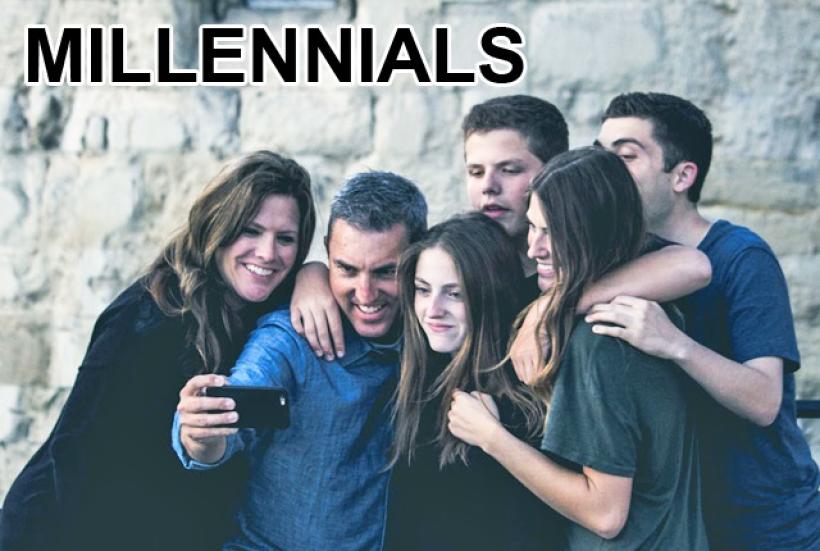Where is the challenge you might ask? As the Baby-Boomers’ generation is about to retire the classic behavioral norms and management mechanisms are not. The Millennials, highly self-motivated, with a pronounced set of expectations in terms of advancing the career path, loyal to their own goals and development plans, acting as employees ready-to-fly-to-greener-pastures when the opportunity rises, are more than meets the eye.
The advancements in technology came with the speed in action, and as such, the new employers are expecting better results in lesser time. The major organizations’ challenge stands in setting a meaningful and motivational cultural environment and creativity in developing their employees’ skills and abilities that will lead to performance. Moreover, the modern management gurus’ covered extended in the past 5 years the recurring theme of managing and leading the Millennials’. The companies are now facing a new corporate dilemma – is it enough to take intro consideration only the daily job operations when planning the Millennials’ development or to include, as well, the potential future business evolution and individual contribution? In one study, Gallup indicates that the vast majority of the Millennials are the “least engaged generation” [ State of the American Workplace Report 2013, pag. 36, ]. Is it possible to have such an attitude as a natural response to the employers’ Generation X cultural approach? Maybe. There is no certain answer, but what is certain is that the Millennials are integrating the uncertainty in their daily professional lives and they behave as such. The
“I can make it anyway” attitude resides in their self-confidence and might be, as stated previously, the source of their disengagement source.
Taking into consideration the volatile job market nowadays with unskilled workforce, reluctant potentials for the available job openings, demotivated and disengaged employees, having in place a transparent and easy to use employee development system culturally integrated is not even by far such an easy task as anticipated. Organizations from all across the industries are now merging the quality of work with the quantity produced, so at the end of the year to be able to measure what was done and how it was done, linking one to the other in one transparent system. The fragile progress in implementing portable systems, with over the Internet access, through a plethora of hand-held devices will lead the organizations one step closer to the heart and the mind of a generation born to master technology and uncertainty. Adding a strong and divers cultural environment to the mix, the organizations’ can maximize their positive impact and influence over a generation eager to prove their predecessors wrong when challenged to deliver results in uncertain economic times.
Several guidelines with positive cultural impact can be of assistance to the organizations’ managers where the Millennials are the majority:
1. Technology does matter - an integrated and easy to access through modern technology evaluation system or employee self-service is appealing and innovative; Millennials will appreciate the organization’s effort to keep up with modern times and will use it as an everyday app tool.
2. Self-evaluation first – will show trust and appreciation to the employees’ perspective of their own performance.
3. Transparent goals for everybody – people will then be able to identify the connection between their own goals, their colleagues and how all together are connected to the organization’s ambition.
4. Milestones – regular face to face meetings between the employee and his manager will allow them both to check up on the progress, identify needed resources and get feedback on how the job was done so far.
5. Keep it informal – the Millennials will appreciate the authenticity of their manager and will feel appreciated if the level of the corporate language is toned down and replaced by a more friendly common language.
6. Flexible working hours – the Millennials want to feel in control when setting the work-life balance, so by adding this opportunity with the flexible working hours schedule the organizations will show them not only consideration for their personal life but also trust in them as professionals whilst promoting themselves as an open to modern times employers.
7. Set the performance vision – employees want need to know where they’re heading and how they can influence the future. It’s of utmost importance for the Millennials to feel connected with a higher purpose than getting the paycheck at the end of the month.
8. Lead the path or at least create a path – the Millennials want need strong mentors from which they can learn, from which to get appreciation and guidance, to whose advice to follow when they hit a rough spot, with which to grow as future leaders.
Don’t motivate, over motivate – the Millennials need to know they’re doing a good job. The feedback and praise are the ultimate weapons of relationship destruction if used poorly, thus, it’s crucial for the managers to use them with caution and if they don’t master such skills, it should be on top of their priority list.
In the words of Gen. Patton Lead me, follow me or get out of my way – the Millennials desire freedom of choice, power to decide, they crave for being responsible for high impact decisions and value a manager that values them back.
The organizations nowadays are paying much more attention to the Millennials’ needs than ever before, not only as a reaction to their numbers but as a long-term investment plan. Today’s entry-level employees are tomorrow’s leaders and as much as the organizations would like to consider them as regular employees, they are not. Today’s Millennials will set the future tone in the corporate culture and performance. The missing links are now becoming obvious more than ever before against all efforts due to organizations’ short-term winnings against long-term vision.
Give the Millennials the opportunity to prove themselves as highly capable professionals and managers and you will win their hearts. Keep them uninformed, bogged down in meaningless tasks, ask them to assume mind-numbing work and you will win their resignation.
Leading the Millennials
Lucescu Alexandra







